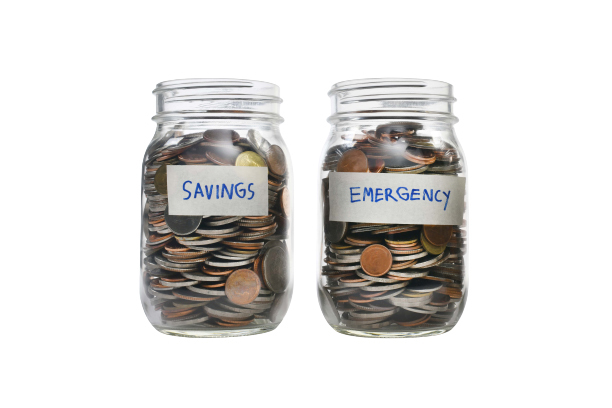I have decided to take the advice of financial experts and save for the future. No doubt, savings can come in handy during emergencies or otherwise. Either way, I need to have a backup fund. I am drafting a budget, and I do not know whether the funds should be labeled emergency funds or savings; after all, both refer to the same thing. Generally, these funds are for situations we have planned for in a while or have not planned for. Emergency funds or savings? I am confused.
This is the dilemma most people face. They automatically believe emergency funds and savings are the same things. Technically they are the same thing since they are savings, but there is a slight difference. You might even ask, does labeling matter? Labeling matters because it plays a significant role in reaching your saving goals if you have one. That is what we would be talking about in this article. I will also show you how to start an emergency fund.
What is savings?
Savings are those funds you keep for future purposes or plans. They can be either planned or unplanned. For example, I want to get a degree, so I save up ahead of time; this is a planned saving. Also, I decide to save, so that during contingencies dependent on funds, I would have something to fall back on. Saving is for an unplanned purpose in this case. There are different types of savings which include:
- Retirement savings: these are funds set aside solely for retirement. At some point, we would all have to stop working as we get older. We have to prepare for that hence the need for retirement funds.
- College savings: these are funds that are set aside for college. I might want to go to college, so I prepare ahead of time by saving for it.

- Medical savings: these are funds kept aside in cases when we fall sick. Sickness does not come announcing its arrival, so we have to be ready.
- Personal savings: these funds are kept aside for personal use. It could be for medical use, college, or rainy days. This type of saving is not specific. It could be for multiple purposes.
- Rainy day savings: these funds are kept aside for unexpected costs like repairing the TV or taking the car to the mechanic, or paying an unexpected levy at all.
What are emergency funds?
An emergency fund is a type of saving, specifically for emergencies or accidents not planned for. It is usually set aside with the knowledge that emergencies or accidents are inevitable, and can happen anytime. Nobody prays for that kind of occurrence to happen to them, but we have to be ready hence the need for emergency funds.
In this case, we notice that an emergency fund is a branch under savings. It is a specific type of savings set aside for a particular purpose. Savings is a general name for all kinds of saving, as we have seen above.
How does labeling help you reach your saving goals: labeling your savings help you achieve your saving goals because it reminds you of why you’re saving in the first place. When you have this in mind, you cannot spend from your savings at will. For example, I could easily take out money from my personal savings when the need arises because I do not have a specific reason for the savings. On the other hand, I can not easily take out money from my college savings because I have a particular target in mind.

How to start a saving/emergency fund
The key is to start little. You could start by saving five percent of your salary in the first month and increasing it a bit by the next month. However, your savings should be realistic, so you do not end up living from hand to mouth or spending all the proposed savings later. Saving does not mean that you will not enjoy the good things of life. An emergency fund should make it to at most 20% of your salary every month. You can keep your emergency fund in a savings account, certificate of deposit, money market accounts, or as an investment. An emergency fund needs to be easily accessible when you need it. You might also need to make some interest on the money. Dodopay offers this, and you can be sure that your emergency funds are 100% safe. It has a certificate of deposit idea in line with their savings option, only that it is not strict. It allows you to create various savings, and each is locked for a minimum of 30 days, after which you can withdraw the money. You also get 22% interest per annum on your money. So while your emergency funds are sitting pretty and waiting for the D-day, it is yielding up interest which, you can see accumulating daily.
Conclusion
Back to my thoughts…
This was helpful because I now know what to write on my budget sheet. Emergency funds would be the perfect fit as it aligns with my goal, and it would not hurt to specify. 22% interest in a year is fair enough for funds I do not need immediately. Visit the dodopay website to download the app.




